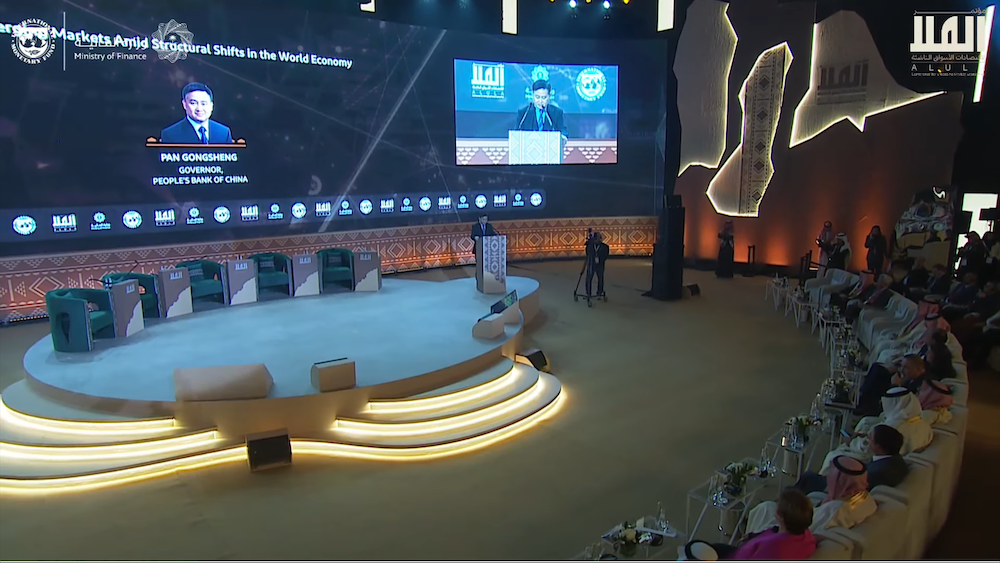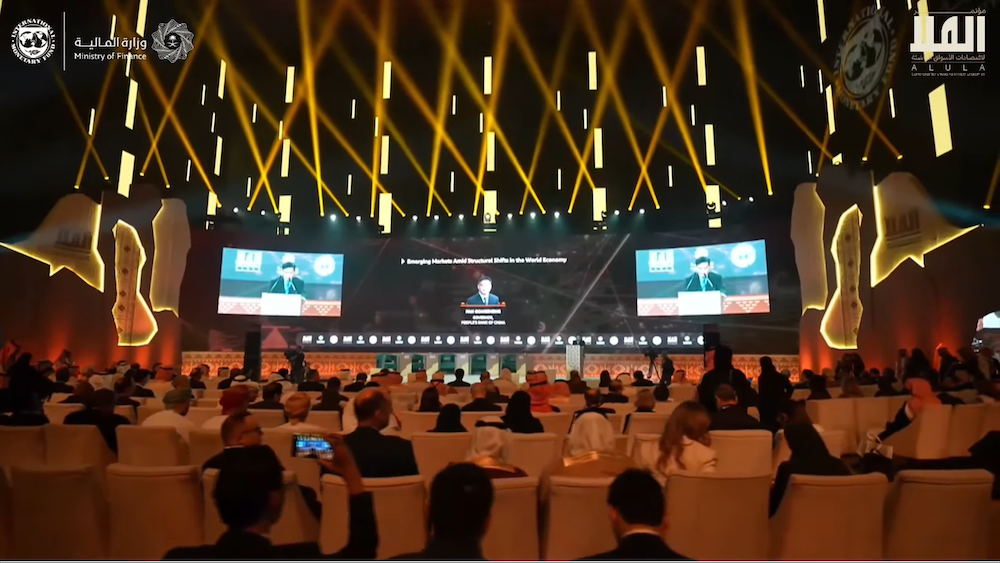RIYADH: The UAE’s non-oil private sector growth remained steady in July but marked its slowest improvement in almost three years, an economy tracker showed.
According to the S&P Global Purchasing Managers’ Index, the Emirates’ PMI slipped to 53.7 in July from 54.6 the previous month as competitive conditions, rising price pressures and capacity overloads weighed on performance.
In July, the index was also below its long-run average of 54.4 but remained solidly above the 50 expansion mark.
David Owen, chief economist at S&P Global Market Intelligence, said: “The drop in the UAE PMI is a further signal that non-oil sector growth is on a downward trend in 2024.”
He added: “Business capacity remained one of the key challenges facing the sector, as indicated by another steep uptick in backlogs as firms struggled to resolve supply and administrative issues.”
In March, UAE Minister of Economy Abdulla bin Touq said that the Emirates’ economy is expected to grow by 5 percent this year, driven by a robust expansion in the non-oil sector and an increase in foreign direct investment.
The minister also said that the UAE’s non-oil economy currently accounts for 73 percent of the nation’s gross domestic product.
According to the S&P Global report, price inflation accelerated further in July, with companies experiencing the fastest rise in input costs for exactly two years.
The financial agency revealed that higher input prices were once again partially passed through to customers, as output charges increased for the third month running in July.
The PMI survey revealed that business activity levels rose further in July, as companies commented on rising inflows of new work, ongoing projects, and improved supply chain conditions.
This rate of expansion, however, eased for the third month in a row and was the lowest recorded in the last three years.
S&P Global said demand conditions in the UAE non-oil private sector remained favorable, with sales rising sharply.
However, due to heavy competition, some firms saw a drop in new order volumes.
The report also highlighted that the UAE’s non-oil businesses attracted international appetite in July, with exports rising at the second fastest pace in nine months.
With concerns that clients could switch to rivals, survey reports indicated that non-oil companies often took on greater work than they could manage, S&P Global added.
The survey said that selling prices rose again in July, with the uptick hitting an over six-year record for the second month, while vendor delivery time showed signs of improvement.
“Although delivery times are improving and purchases rising, firms were forced to dip into their stocks to try and resolve some of these issues, which could act as a headwind to growth if inventories are noticeably depleted,” said Owen.
The survey’s participants also showed optimism about the future growth of non-oil businesses in the UAE in the next 12 months, although their confidence slipped to its weakest level since January.
“Overall, the PMI suggests that the non-oil sector is expanding solidly and could be strengthened if companies start to get on top of their workloads,” Owen said, adding: “Firms are generally optimistic of this, with confidence in the year ahead remaining strong, while hiring also continued in a bid to raise staff capacity.”
In the same report, S&P Global said that Dubai’s PMI dropped to its lowest level in two-and-a-half years in July to 52.9 from 54.3 in June.
According to the report, a softer upturn was due to low orders in Dubai’s non-oil private sector, which was partly dampened by competitive conditions.
Egypt inching toward growth territory
In another report, S&P Global revealed that Egypt recorded a PMI of 49.7 in July, the second highest in almost three years, but marginally lower than 49.9 in June.
The US-based agency said that Egypt’s non-oil economy held close to the line between growth and contraction in July, with output and new business declining at marginal rates.
The PMI survey added that employment grew in July while output expectations recovered slightly.
“The Egyptian non-oil economy still appears to be on the cusp of expansion, with the July PMI registering just shy of the 50 mark,” said Owen, adding: “While some firms pointed to a turning of the tide in economic conditions, particularly through rising export demand, market conditions were stated as weak elsewhere.”
According to S&P Global, price pressures among Egyptian non-oil firms remained low in July compared to the past couple of years but showed tentative signs of intensifying as input costs rose at their steepest pace since March.
“Inflationary pressures on firms largely followed the trend seen in the second quarter, which has been subdued compared to the heightened rates in recent years,” Owen said.
“However, a slight pick-up in input cost inflation in July could make some firms concerned about the risk of prices picking up again and constraining business activity,” he added.
At the start of the third quarter, non-oil businesses in Egypt reported a minor yet persistent contraction in activity levels, driven by weakening sales and price pressures. Although this pace of decline accelerated slightly from June, it was the second weakest in nearly three years.
The report added that almost 9 percent of surveyed firms reported a decline in sales, while 7 percent noted an expansion.
On a positive note, new export orders saw an increase for the third consecutive month in July, driven by improved demand for Egyptian non-oil goods from foreign markets.
In July, job creation in Egyptian non-oil firms also saw a slight uptick, reversing a fractional decline in June, as companies hoped that the dip in sales would be brief and that conditions would improve.
Kuwait’s non-oil private sector maintains momentum
S&P Global revealed that the non-oil private sector in Kuwait started the second half of the year positively, driven by a rise in new orders.
Kuwait’s PMI in July stood at 51.5, broadly unchanged from 51.6 in June.
“As has been the case for some time now, firms in Kuwait were able to use advertising and competitive pricing to secure new business and expand output during July,” said Andrew Harker, economics director at S&P Global Market Intelligence.
He added: “Discounts were often offered in spite of increasing input prices, including a record rise in staff costs.”
According to the report, new orders continued to increase at a solid pace in July despite the rate of growth easing to a 10-month low.
S&P Global added that new orders from regular customers helped Kuwaiti non-oil companies to expand business activity again in July.
Harker said that non-oil firms faced difficulties in finding the right talents to meet the growing demand.
“A key challenge for firms in July was finding suitably skilled staff, and these difficulties meant that employment was unchanged during the month, resulting in a further build-up of outstanding business,” said Harker, adding: “Firms will be hoping to find it easier to raise employment in the months ahead so that they can expand output and keep on top of workloads.”
The survey said non-oil firms in Kuwait remained confident that output will increase over the coming year, although sentiment eased to the lowest since February.
Qatar’s non-energy business growth eases in July
In another report, S&P Global said that Qatar’s non-energy private sector continued its expansion in July, propelled by solid output growth and new orders.
According to the study, the Middle East nation’s PMI slipped to 51.3 in July, from June’s 23-month high of 55.9.
The PMI in July was also below the long-run trend level of 52.3, which Qatar maintained since April 2017.
“The PMI remained firmly in growth territory in July, with the latest gains in output and new orders running broadly in line with their robust long-run averages,” said Yousuf Mohamed Al-Jaida, CEO of Qatar Financial Center Authority.
He added: “Growth momentum eased at the start of the third quarter, though this correction was perhaps to be expected in the context of a surge in June when the PMI posted its second-highest level in the survey history when excluding the post-pandemic rebound and lead-up to the 2022 World Cup.”
The report added that incoming new orders for non-energy companies in Qatar expanded for the 17th time in 18 months, driven by strong reputations, customer trust, and high-quality goods and services.
S&P Global highlighted that business optimism and confidence among non-energy firms regarding the next 12 months strengthened to a ten-month high in the seventh month of 2024.
“July data also suggested an improvement in productivity, reflecting the combination of increased new orders, lower outstanding business and a slight reduction in employment,” added Al-Jaida.
























